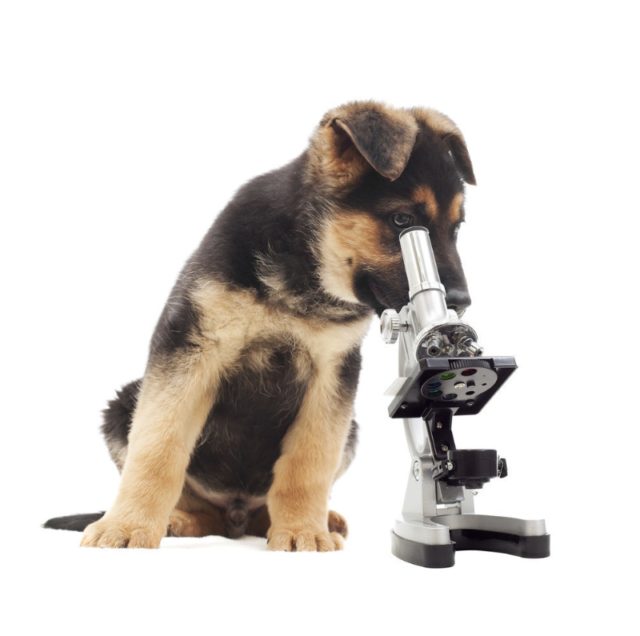
In a time frame perhaps not too far away, veterinarians will be able to tell a client how likely his dog is to develop heart disease, allergies or hip dysplasia. The rapidly developing world of genetic testing of companion animals was highlighted at the American Veterinary Medical Association Convention held this week in San Antonio.
Knowledge is power, and the knowledge of genetic predisposition also paves the path to proper diagnosis and treatment in veterinary clinics across the world.
“Veterinarians are becoming savvier in understanding genetic predispositions,” said Dr. Jerold Bell, a small animal practitioner and adjunct professor at the Tufts University Cummings School of Veterinary Medicine. “Many are already using genetic testing in diagnostics to provide counseling and treatment for their patients, but we need to stay up to date.”
All schools of veterinary medicine include some form of genetics training, he says, but continuing education courses like those at the AVMA convention are vital to learning the magnitude of change in genetics testing.
Most early progress in genetic testing in dogs and cats has been made in the field of ophthalmology. Although hip dysplasia and diabetes may occur more often and affect all breeds, most eye diseases are caused by single genes and have no cure or treatment. They have to be bred out of existence, and therein lies the reason why genetic research on companion animals has enjoyed a long-term relationship with the eye.
Breed-specific disorders like exercised-induced collapse in Labrador Retrievers or hypertrophic cardiomyopathy in Main Coon cats are identifiable by genetic testing, which is typically just an easy cheek swab away. But what about the many pets with a blurred lineage?
“Companies are using diagnostics to determine what breeds exist in a mixed-breed dog,” said Dr. Bell. “Some companies take it one step further and also tests for genes controlling body conformation and known disease causing mutations.”
Other resources provide a list of testable disorders and treatments, most notably the WSAVA Canine and Feline Hereditary Disease Test Database hosted on the PennGen website at the University of Pennsylvania School of Veterinary Medicine.
“We need to relate what we know about the genetics at hand and properly use that information,” said Dr. Bell. “Even in predisposed breeds, the DM liability gene test by itself is poorly predictive of developing the disease. Why would you tell an owner that her dog may or may not develop that disease when it’s 10-plus years old and negatively impact her relationship with that pet? This is a pitfall that we need to avoid in our client-patient relationships.”
To learn more about the AVMA Annual Convention, visit www.avmaconvention.org.
The AVMA, founded in 1863, is one of the oldest and largest veterinary medical organizations in the world, with more than 88,000 member veterinarians worldwide engaged in a wide variety of professional activities and dedicated to the art and science of veterinary medicine.
SOURCE American Veterinary Medical Association
RELATED LINKS
http://www.avma.org












